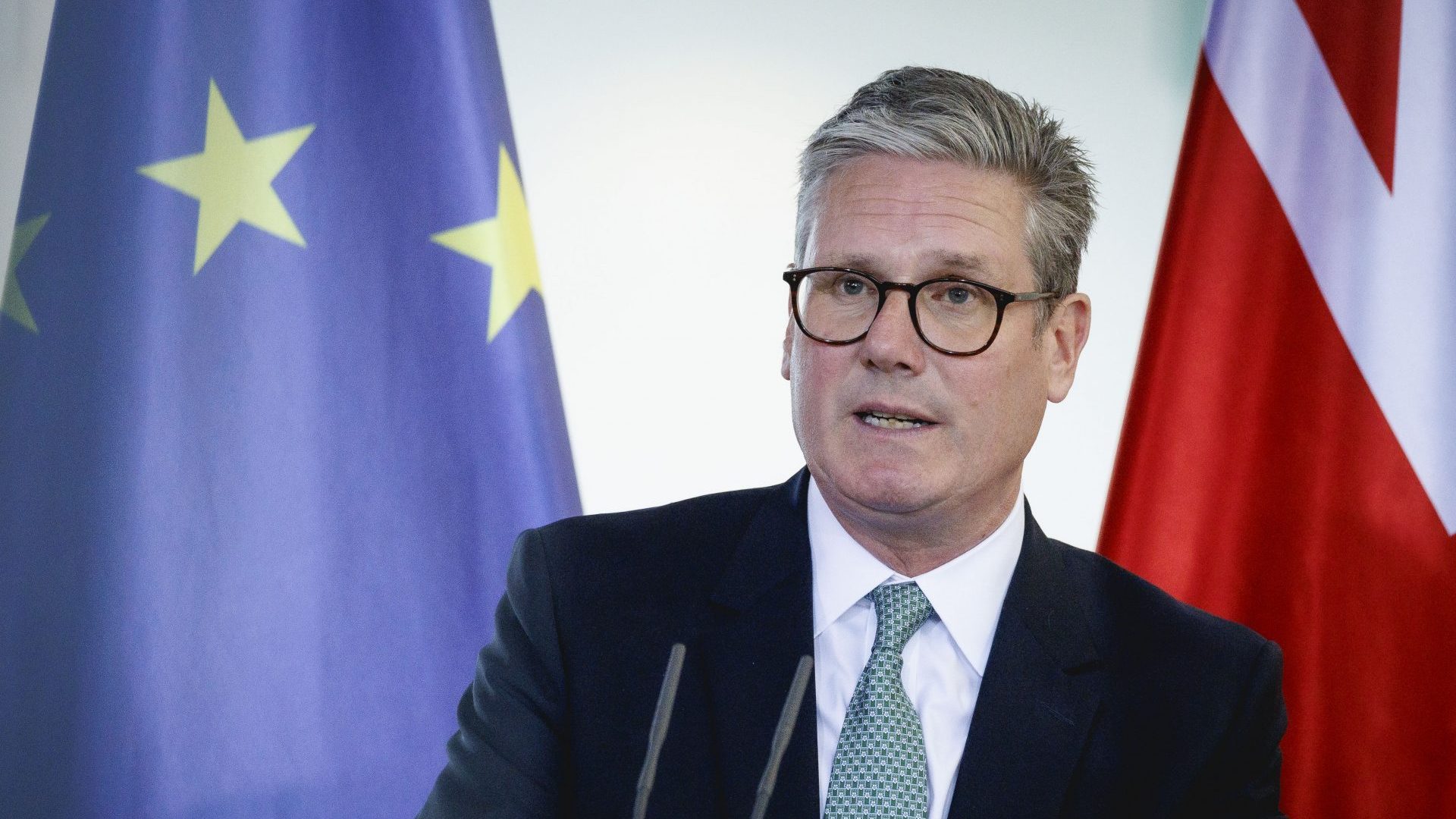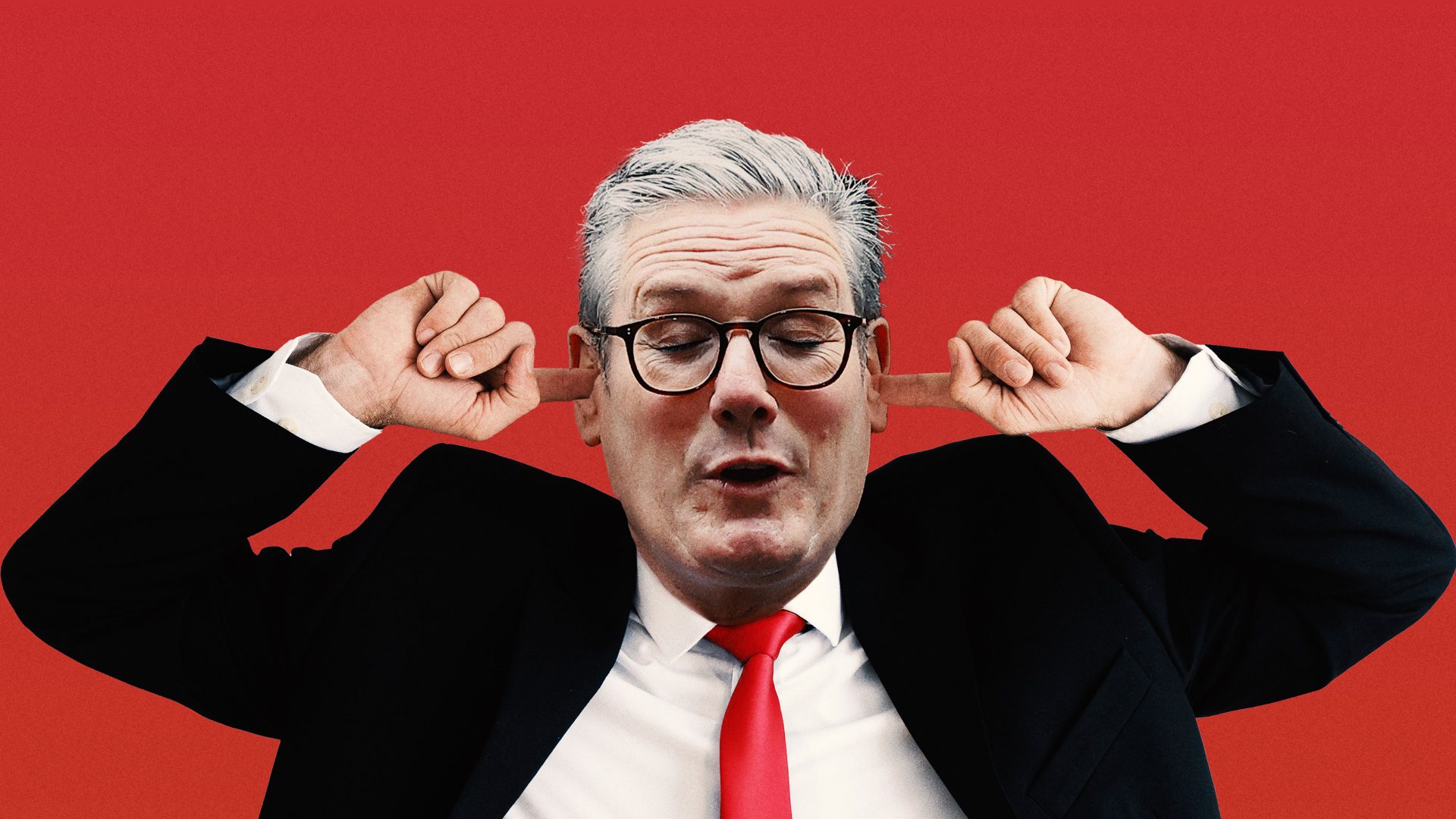“We cannot turn our backs on Europe. We are part of Europe, our children and our grandchildren will continue to have a wonderful future as Europeans.”
These were the words of one Boris Johnson on June 24 2016, as his Vote Leave colleagues celebrated their famous referendum victory. Eight years, three general elections and six prime ministers later, the idea that Britain hasn’t turned its back on Europe is questionable.
The combined result of politicians terrified of saying the “E” word, civil servants retiring or moving on, the near-total shutting out of experts by successive governments and an inevitable eight-year drift since the Brexit earthquake means that in 2024, the top echelons of politics have a knowledge gap in what the EU wants and how it operates.
Earlier this month, Denis MacShane wrote in these very pages: “Among the 411 Labour MPs there are many – if not an outright majority – who think Brexit was a wrong turn. But so far their lips are (in public) sealed. They do not want to make life even more difficult for the new PM. “
McShane’s observation is on the money; but the de facto EU omertà in Westminster runs deeper than MPs not wanting to rock the boat.
Although Keir Starmer is pushing to be part of a European defence and security pact that is now a top priority after Donald Trump’s election triumph in the US, senior civil servants, former ministers and leading academics still cannot see a point in the near future when Brussels stops being thought of as an alien land of limited interest to the British government.
David Liddington, Theresa May’s deputy prime minister and David Cameron’s Europe minister, explains that “our absence from the table in Brussels inevitably means we miss out on official discussions between our counterparts and the water-cooler moments. It means we miss out on much of the EU’s internal thinking and debates, and the relationships between different member states and institutions.”
As Starmer seeks to reset Britain’s relationship with the EU, it’s not immediately clear if he or anyone in his government is aware of how wide the knowledge gap is or if they are trying to do anything to make it smaller.
“We have seen the new government do things that send positive signals to Brussels,” says Catherine Barnard, professor of EU law at the University of Cambridge. “This government has introduced a Bill that enables ministers by Statutory Instruments to align more easily with EU law in certain areas. The government has also enabled judges to carry in applying pre-Brexit case law.”
Whether or not that has shifted the dial much in Brussels is debatable. EU officials have praised Starmer for his warmer tone, but still complain that he’s yet to outline exactly what he wants from this reset – privately or publicly.
Why must we know about Europe?
It’s not uncommon to hear former officials and experts say that one of the great ironies of Brexit is that leaving the EU means you need to know more about the EU. Despite leaving the bloc, Britain shares a land border with the EU in Northern Ireland and still trades more with Europe than with any other single partner. British citizens still travel to and from Europe for work and pleasure. That means almost any decision the EU makes could have an impact on areas of British life. The difference is now that we have no say in those decisions.
It also makes those decisions harder to predict for British politicians. “Not having a seat at the table in Brussels means that we don’t know as much about what is coming down the track or the exact reasons Europe might want to take decisions on anything from regulations to taxation,” Barnard says.
Brussels insiders believe that this disconnect in London is partly why Starmer’s objectives for the Europe reset are, in their opinion, quite a long way from getting anywhere.
“After we’d finished the Brexit negotiations that book was closed our end,” says an EU diplomat. “To reopen anything like substantial, the UK would need to offer us something that matches our current objectives.” It’s true that Brussels has a long list of tricky problems it’s trying to solve at the moment, many of which the UK cannot help with. But it’s also no secret that the EU would be open to working more closely with the UK on youth mobility, security, energy and fisheries.
The government knows this, but also knows that saying any of this publicly risks Nigel Farage leaving the pub to rage about a sell out on GB News. However, it’s possible that if Starmer and his government were willing to engage with external experts who understand how Brussels works at a technical level, they might realise there are more subtle ways to address these areas in a way that wouldn’t spook the horses, or Reform UK.
Why is talking to experts so hard?
As mention of Farage implies, Brexit is still an explosive subject domestically and must be handled with care. Anyone who has to deal with the government communications team on anything relating to Europe will tell you that replies are slow and lack detail. The main reason for this is, sources say, that the government knows how easily something relatively minor can become a damaging media story.
That means limiting risks and keeping the loop around the government’s Europe policy as tight as possible. It used to be relatively common for top academics, leading figures in business and others with expertise to advise ministers on their areas of expertise. In this world of post-Brexit hostility, external advisors carry two specific dangers to the government.
First, the professional and personal history of an individual could be seized upon by the government’s influential pro-Brexit opponents – both political and in the media.
Second, leaks. There is always a risk in bringing third parties into government decision-making, even if it’s purely advisory. Leaks don’t just lead to annoying media stories; they create cultures of distrust that make meaningful work harder. In the specific instance of post-Brexit policy, leaks that weaken the government are also seen by Brussels, who will adjust their view of – and desire to negotiate with – London accordingly. Some EU figures call this the “trust gap”.
Multiple leading figures interviewed for this article, many of whom had previously been asked to brief governments, described a shift since 2016, with government officials treating anyone with detailed knowledge of the EU and its institutions as though they were “part of the Brussels establishment” rather than people working at British universities. Ironically, Britain’s hostility to Europe has led to many of these academics having their access to the EU institutions themselves restricted, adding another worrying dimension to Britain’s European knowledge gap.
Distance makes the heart stop beating
Part of the genius, by accident or design, of Boris Johnson’s Brexit is that it means the longer Britain is out of Europe, the further the two parties drift apart. His legacy is one that created an enormous trust gap that will only grow over time.
The practical complexity of the trade deal, which still hasn’t been fully implemented, is a good example of this. While it might be tempting to believe that not putting up all the barriers agreed with the EU makes Brexit easier to reverse, this is not how it’s viewed in Brussels. A large number EU officials say that not fully implementing the deal agreed more than five years ago is proof enough that any new agreements with the British would not be worth the paper they are written on.
The trust gap will grow as long as the knowledge gap in London is tolerated. EU officials from across the institutions complain that Britain still doesn’t seem to understand where it sits in the pecking order of Brussels’ priorities – somewhere pretty low. It’s a vicious cycle and the longer Starmer and his team remain tight-lipped about Europe, the more vicious that cycle becomes.
What can be done?
“It would be helpful if the government could use structures that already exist to expose civil servants to more European issues,” says Simon Usherwood, Professor of Politics at the Open University. “Whether that’s cycling through embassies in Brussels or across the capitals or reintroducing scholarships to the College of Europe, if we are re-engaging with Europe, this sort of thing would clearly help.”
That might solve the knowledge gap in government, but the toxicity of Europe as an issue would still be a problem. Civil servants have for months about the lack of messaging and clarity in what Starmer’s objectives are in Europe. “We’ve tried to get them to do Q&A’s on social media and generally be more public, but everything has been resisted so far.”
If Starmer wants a post-Brexit reset, he’s going to need the help of people beyond his inner circle for advice and to find ways of selling his new vision to the public.
This will mean using experts in London and counterparts across the EU to better understand the lay of the land in Brussels. A successful reset will require not just technical knowledge of how Europe operates, but how it thinks.
The longer Europe is treated as a dirty word, the harder this will become. And the longer governments remain unwilling to talk about Brexit, the harder it will be for the public to imagine how Britain’s future in Europe might realistically look.



